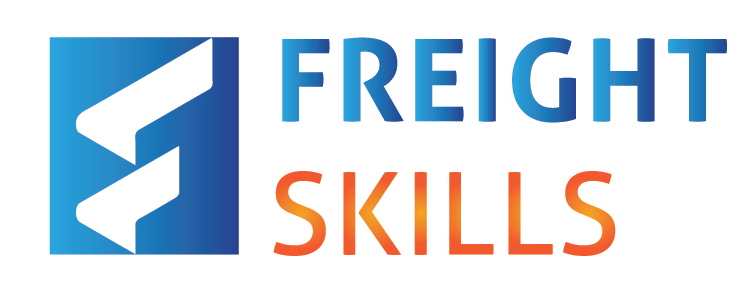Imagine being the go-to expert in the freight brokerage world, with clients seeking you out for your exceptional services and industry knowledge. This dream can become a reality as you master the art of how to market your freight brokerage. In this blog post, you’ll learn about the various strategies for success, from crafting a captivating brand to leveraging digital marketing channels and establishing thought leadership. Let’s embark on this journey to marketing success together!
Key Takeaways
- Craft a strong brand identity to stand out from competitors.
- Identify and promote unique aspects of your freight brokerage business for credibility.
- Leverage digital marketing channels, create engaging content, optimize sales process & track KPIs to drive success.
Crafting Your Freight Brokerage Brand

A strong brand is the backbone of any successful business, and your freight brokerage is no exception. Building a powerful brand identity sets you apart from competitors and helps you connect with your target audience.
Elevate your freight brokerage’s position in the industry and attract more clients by defining your unique selling proposition, creating a visual identity, and crafting a compelling brand message.
Defining Your Unique Selling Proposition (USP)
Identifying what sets your freight brokerage business apart from the competition is a key step in standing out from the crowd. As a freight broker, understand your niche and showcase your expertise in areas such as importing and exporting goods, navigating bureaucratic processes, and providing reliable service. Partnering with experienced freight brokers can also enhance your business’s reputation and credibility.
Focusing on your USP will help you attract the right clients and build a solid reputation in the logistics industry.
Building a Visual Identity
Your visual identity plays a significant role in shaping your brand image and customer experience. Creating a consistent and professional visual identity that reflects your brand’s purpose and identity is necessary. Consider elements such as color palette, typography, and logo design that are simple, timeless, and recognizable.
A well-designed visual identity will help you establish a strong presence in the market and build trust with potential clients.
Crafting Your Brand Message
Your brand message serves as a bridge to connect with your target audience and showcase the value you offer. A clear and concise message that communicates your brand’s value and resonates with your target audience is necessary to create.
Use compelling language, active verbs, and storytelling techniques to craft an engaging message that effectively highlights your unique services, customer service, and industry expertise. By doing so, you can make your outreach more appealing and reduce the need for cold calls.
Leveraging Digital Marketing Channels

Taking advantage of various marketing channels to reach potential clients and generate leads is a necessity in today’s digital world. Social media marketing, search engine optimization (SEO), and paid advertising are powerful tools that can help you expand your reach, increase visibility, and drive lead generation.
We will discuss how to leverage these digital channels to boost your freight brokerage’s success.
Maximizing Social Media Impact
Social media platforms such as LinkedIn, Facebook, and Instagram offer valuable opportunities to engage with potential clients and showcase your expertise. Here are some strategies to make the most of these platforms:
- Create engaging content that provides entertainment and value to your audience.
- Comment on influencer posts to increase your visibility and build relationships with industry leaders.
- Share relevant industry news to position yourself as a knowledgeable and trustworthy source.
- Follow the 80/20 rule, where 80% of your content provides entertainment and value, and 20% focuses on promoting your services.
By implementing these strategies, you can build brand awareness and establish trust with your target audience.
Enhancing Visibility with Search Engine Optimization (SEO)
SEO is a vital component of any digital marketing plan, as it helps your website rank higher in search engine results and attract more organic traffic. Identifying relevant keywords, optimizing website content, and creating high-quality content can lead to improved website visibility and an influx of more qualified leads.
Don’t underestimate the power of SEO, as it can be a game-changer in driving success for your freight brokerage.
Driving Leads with Paid Advertising
Investing in paid advertising on platforms like Google and Facebook can help you reach your target market and generate leads more effectively. Creating targeted ads that resonate with your audience can help drive traffic to your website and convert that interest into signed agreements. Consider working with an expert to design and implement your paid advertising campaigns for optimal results.
Establishing Thought Leadership

Positioning yourself as an industry expert is a powerful way to attract potential clients and stand out from the competition. By mastering content marketing and hosting webinars or online events, you can share industry insights, showcase your expertise, and engage with your target audience.
We will examine how to establish thought leadership and become the recognized expert in the freight brokerage industry.
Content Marketing Mastery
To create content that is valuable and informative, not only showcases your expertise but also addresses the pain points of your target audience. Develop engaging content such as:
- Blog posts
- Articles
- Videos
- Infographics
These content formats provide just a few examples of helpful insights, industry trends, and solutions to the challenges faced by shippers and carriers.
Providing relevant content can help you establish yourself as a valuable resource and attract more potential clients.
Hosting Webinars and Online Events
Organizing webinars and online events can be an excellent way to connect with potential clients, share industry insights, and demonstrate your expertise. Planning and hosting these events can create a buzz around your content, foster meaningful discussions, and encourage people to talk about your brokerage and the value you provide.
Don’t underestimate the power of virtual events and webinars in strengthening your thought leadership platform.
Networking and Relationship Building

Building connections is crucial for the success of any freight brokerage, as it helps generate leads and increase visibility. By attending trade shows and conferences, establishing referral programs, and forming partnerships with industry players, you can expand your network and open up new opportunities for your business.
We will examine how networking and relationship building can propel your freight brokerage to new heights.
The Power of Trade Shows and Conferences
Participating in industry events allows you to meet potential clients, showcase your services, and stay informed about market trends. Attending trade shows and conferences can help you build valuable connections, demonstrate your expertise, and generate leads for your freight brokerage. Be sure to plan your participation strategically and make the most of every opportunity to interact with attendees and industry professionals.
Referral Programs and Partnerships
Encouraging satisfied clients to refer your services and collaborating with industry partners can help you expand your reach and generate more leads. By offering incentives or rewards to clients who refer new business, you can increase the likelihood of these referrals converting into sales.
Partnering with other companies in the logistics industry can help provide valuable resources and support, aiding in your freight brokerage’s growth and success.
Optimizing Your Sales Process
An optimized sales process is essential for the success of your freight brokerage. By training and equipping your sales team with the necessary tools and resources, and streamlining lead management, you can improve conversion rates and achieve consistent results.
We will discuss the strategies for optimizing your sales process and driving success for your freight brokerage.
Training and Equipping Your Sales Team
Providing your sales team with the necessary training, tools, and resources empowers them to excel in their roles and contribute to the success of your freight brokerage. Investing in ongoing training, coaching, and support ensures that your sales team stays up-to-date with industry trends and best practices, enabling them to better serve clients and close deals.
Equip your sales team with the skills and tools they need to succeed, and watch your business flourish.
Streamlining Lead Management
Effective lead management is crucial for the success of your freight brokerage. Implementing a CRM system, along with transportation management software, can help you manage leads more efficiently and automate follow-up processes, ensuring that no potential clients slip through the cracks.
Streamlining your lead management process and leveraging CRM tools allows for better tracking of your sales pipeline, monitoring of performance, and identification of areas for improvement.
Creating a Memorable Customer Experience
A memorable customer experience can make all the difference in attracting and retaining clients for your freight brokerage. By offering personalized service strategies and handling negative reviews professionally, you can ensure client satisfaction and foster loyalty.
We will discuss how to create an exceptional customer experience that sets your freight brokerage apart from the competition.
Personalized Service Strategies
Tailoring your services to meet the unique needs of each client and providing exceptional customer support is vital for creating a memorable customer experience. Understanding your clients’ specific requirements and offering customized solutions demonstrates your commitment to their success and helps in building lasting relationships.
Invest in personalized service strategies to ensure your clients feel valued and well-served.
Handling Negative Reviews Professionally
Negative reviews can significantly impact your freight brokerage’s reputation, making it essential to handle them professionally and empathetically. Responding to negative reviews with understanding and offering solutions showcases your commitment to customer satisfaction and helps turn a negative experience into a positive one.
Addressing negative online reviews promptly and professionally can help maintain and even enhance your reputation in the industry.
Evaluating and Adjusting Your Marketing Efforts
To ensure the continued growth and success of your freight brokerage, it’s essential to evaluate and adjust your freight broker marketing efforts regularly. By tracking and measuring the success of your marketing strategies and adapting to market changes, you can maintain a competitive edge in the industry.
We will discuss the importance of evaluating and adjusting your marketing and sales efforts to stay ahead in the game, with a focus on marketing efforts.
Tracking and Measuring Success
Using analytics tools to monitor the performance of your marketing efforts is crucial for identifying areas for improvement and ensuring the success of your freight brokerage. Measuring key performance indicators, such as revenue per broker and on-time pickup and delivery, can provide valuable insights into the effectiveness of your marketing strategies, enabling data-driven decisions to optimize your efforts.
Adapting to Market Changes
Staying informed about industry trends and adjusting your marketing strategies accordingly is vital for maintaining a competitive edge in the freight brokerage market. Continuously adapting your marketing efforts to market changes ensures that your freight brokerage remains relevant and successful in the dynamic logistics landscape.
Embrace market changes and adjust your strategies to seize new opportunities and thrive in the industry.
Summary
Mastering the art of marketing your freight brokerage can be a game-changer for your business. By crafting a strong brand, leveraging digital marketing channels, establishing thought leadership, and building valuable connections, you can attract more clients and achieve consistent growth. Remember to monitor and adjust your marketing efforts regularly to stay ahead of the competition and ensure your freight brokerage’s continued success. Now is the time to embark on this journey and unlock your full potential in the freight brokerage industry!
Frequently Asked Questions
How do freight brokers get clients?
Freight brokers can find clients by making cold calls, targeting supply chains and companies, utilizing social media, setting up referral and reward programs, reaching out to similar businesses, offering to be a backup, and offering free audits.
How do I grow my freight brokerage?
To grow your freight brokerage, prioritize relationships, be quick to respond, know your costs inside and out, learn something new every day, target a niche, start with existing customers, unearth new clients, use your existing carrier network, beef up your referral network, sound out your customers’ customers, take advantage of broker load boards, lean into fast payment, utilize freight factoring, get training, obtain broker contracts and paperwork, find shippers and carriers, set prices, and move freight. Additionally, grow your current customers, gain new customers, groom your carrier network, invest in tools and technology, and hire help when you are ready.
What are the key components of a strong freight brokerage brand?
A strong freight brokerage brand should have a clear USP, a professional visual identity, and an engaging message to resonate with customers.
How can I use social media to market my freight brokerage?
Engage with potential customers, share industry-relevant content, and showcase your expertise on popular social media platforms to effectively market your freight brokerage.
What are some effective content marketing strategies for freight brokerages?
To reach shippers and carriers, freight brokerages should create engaging content such as blog posts, articles, videos, and infographics. This content should offer helpful industry insights, trends, and solutions to common challenges.
